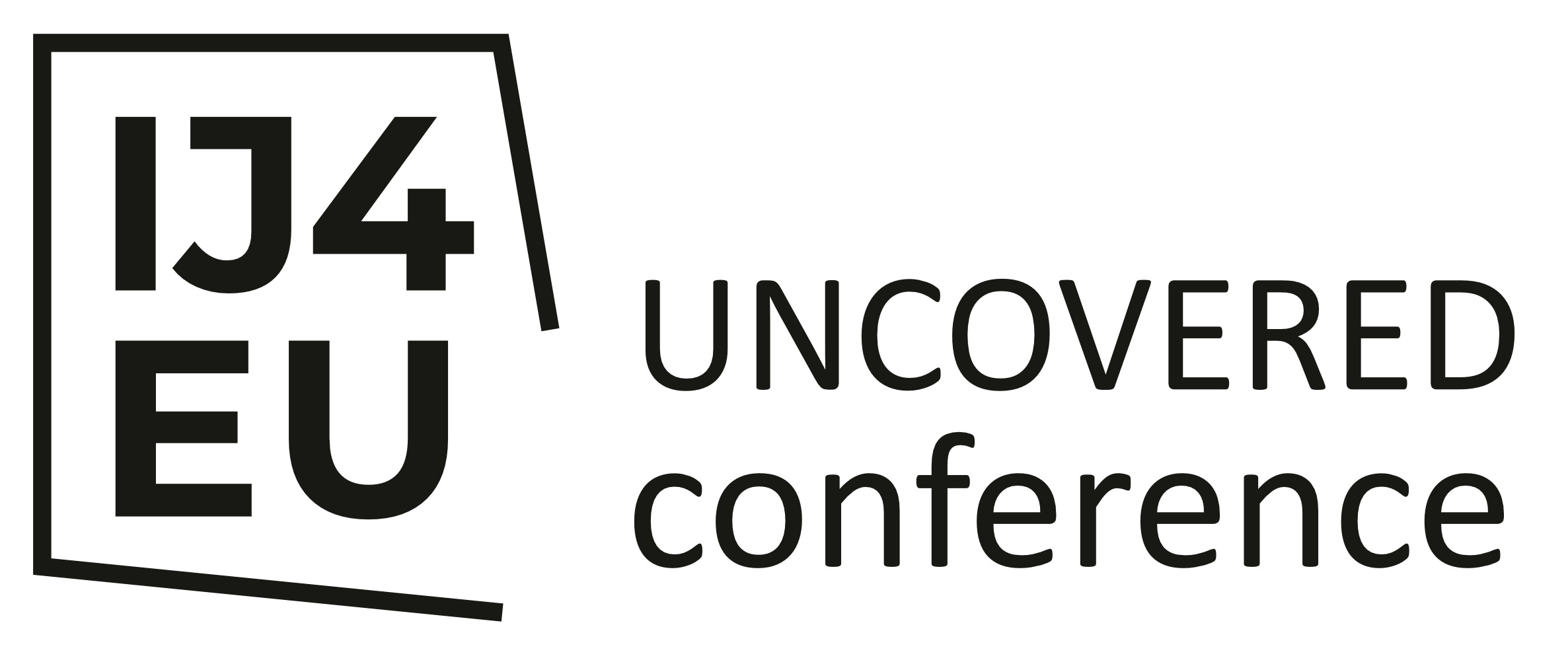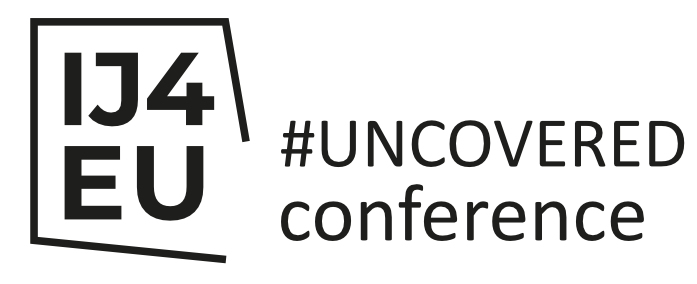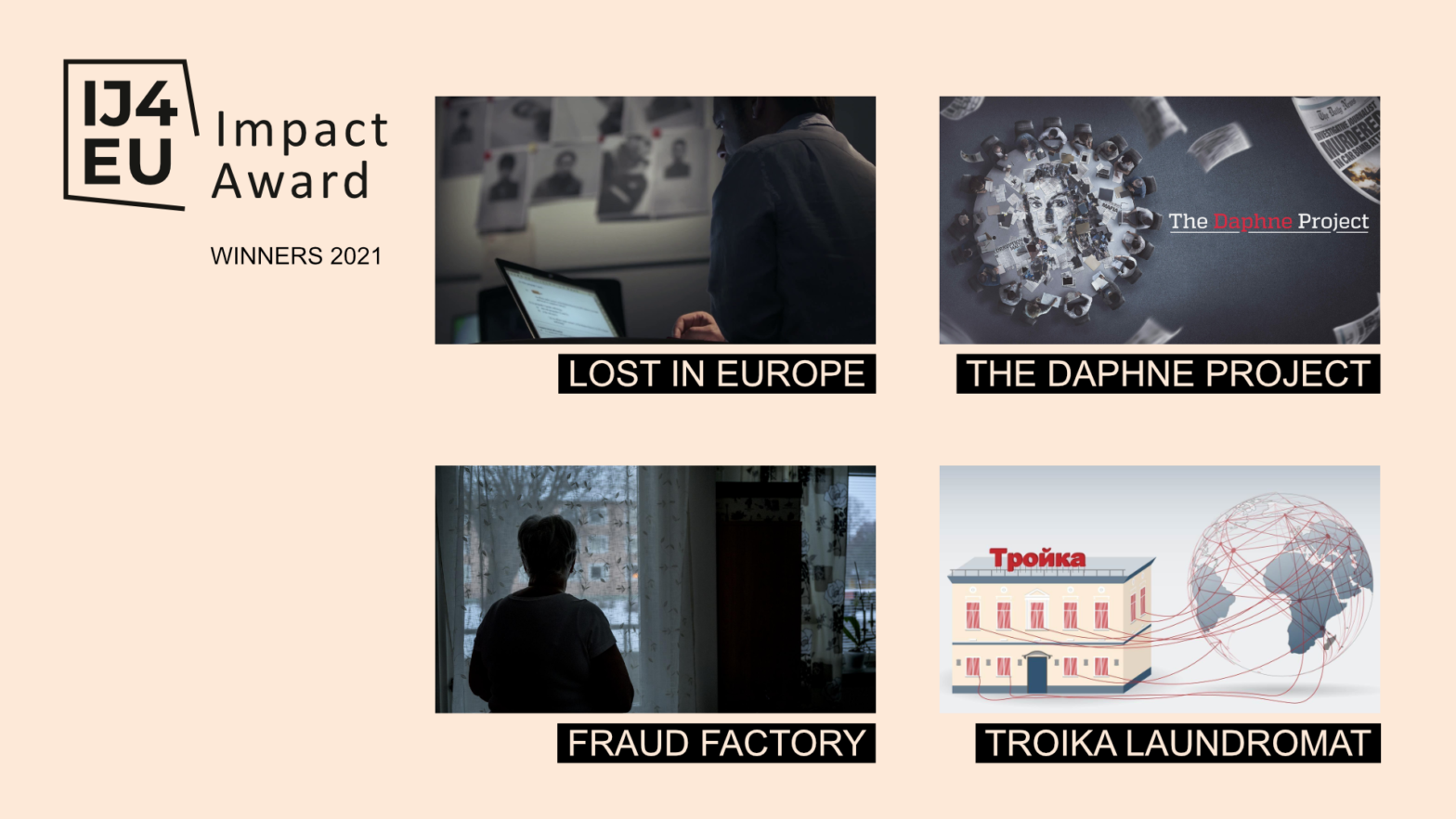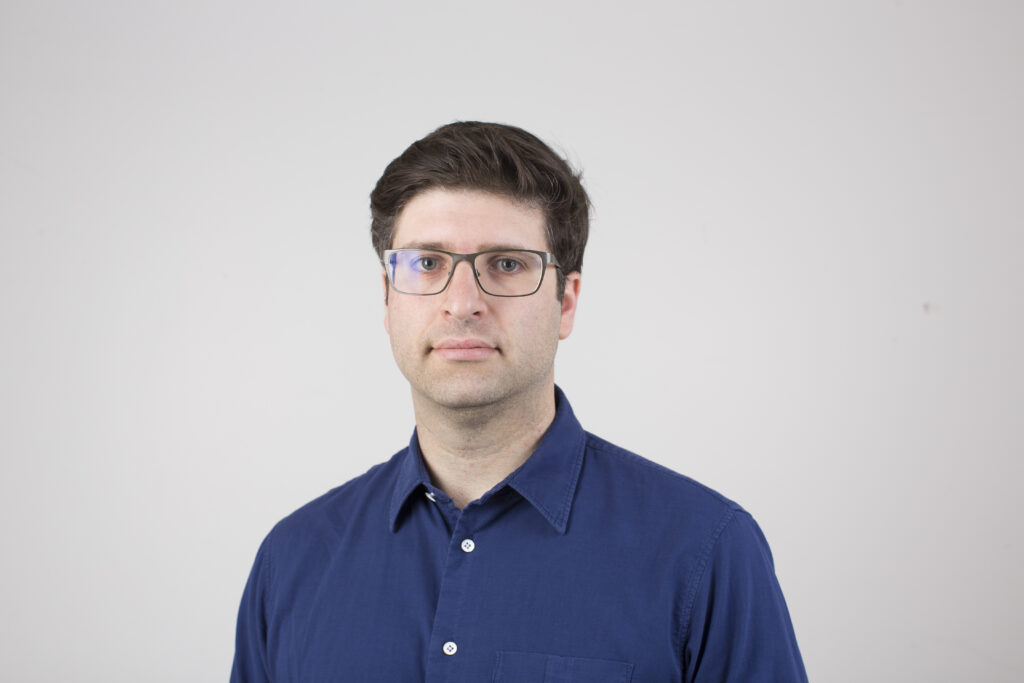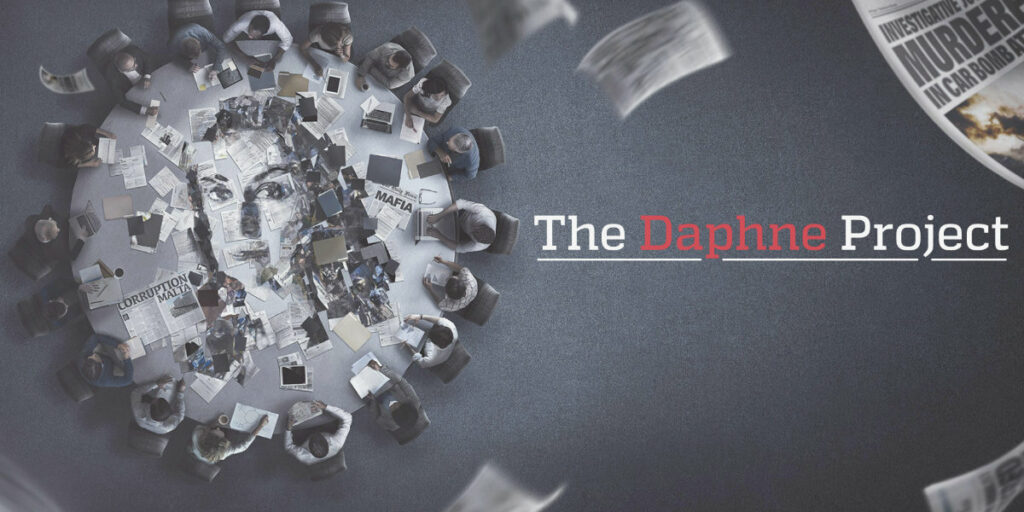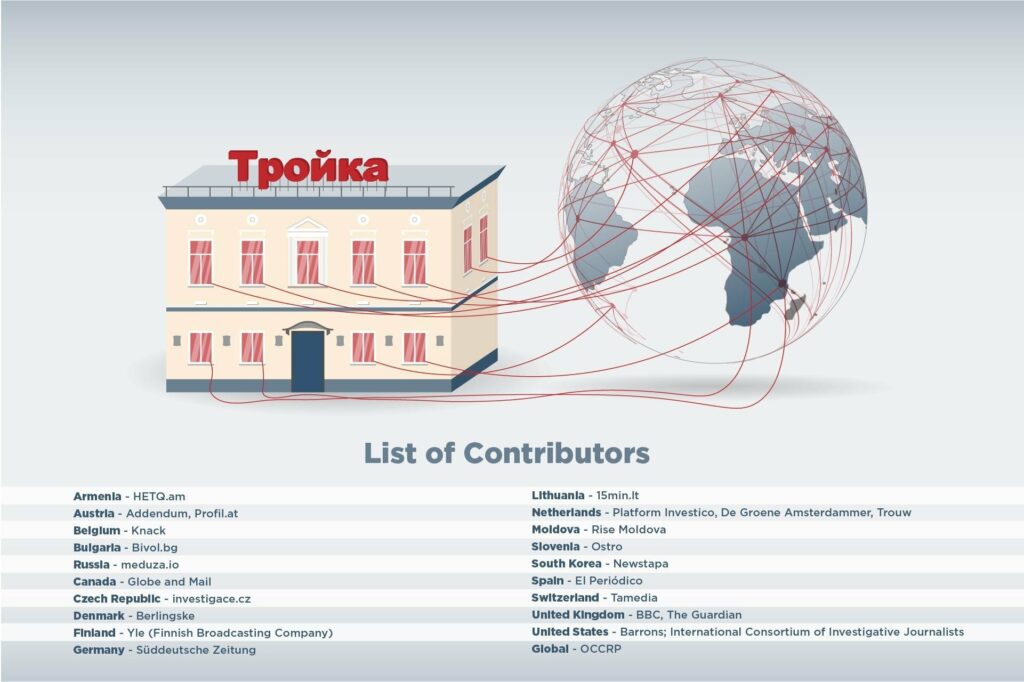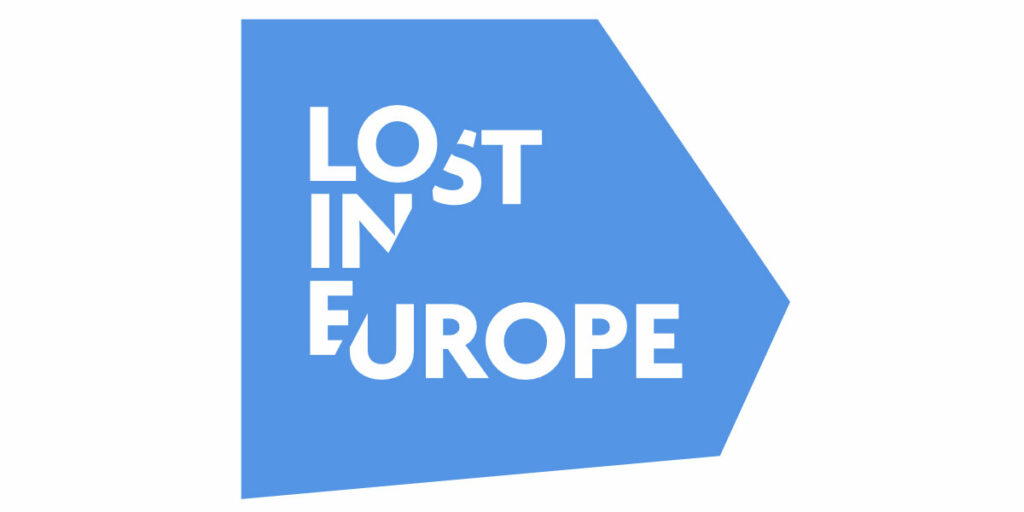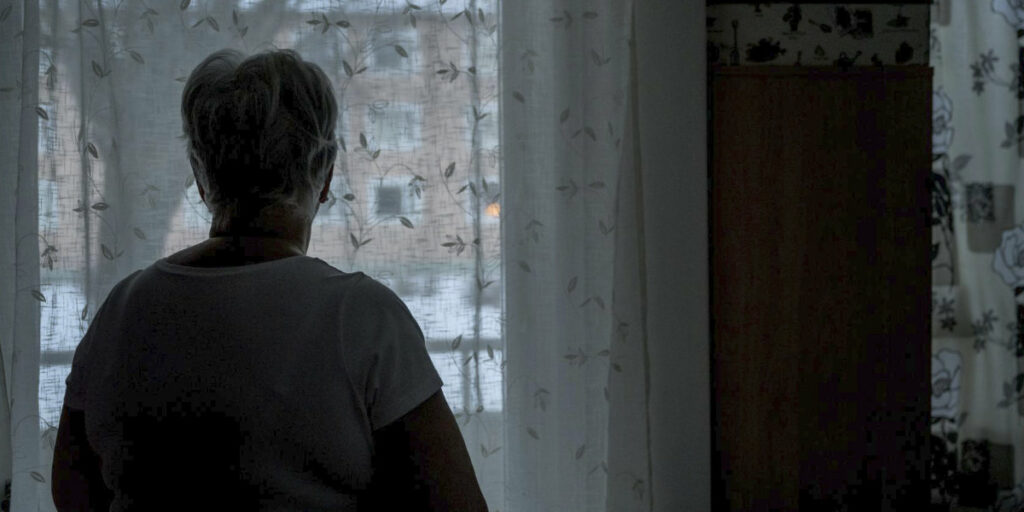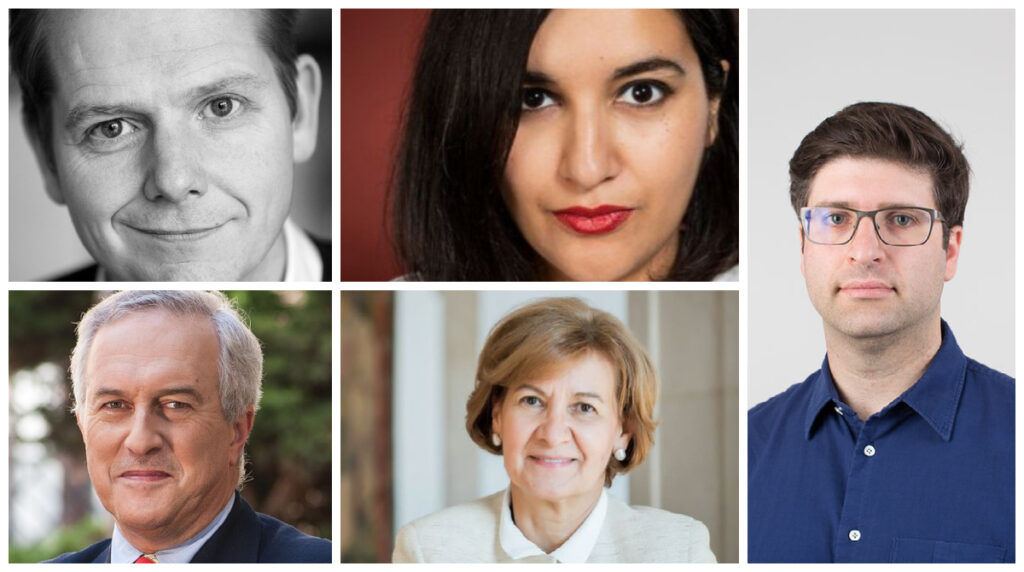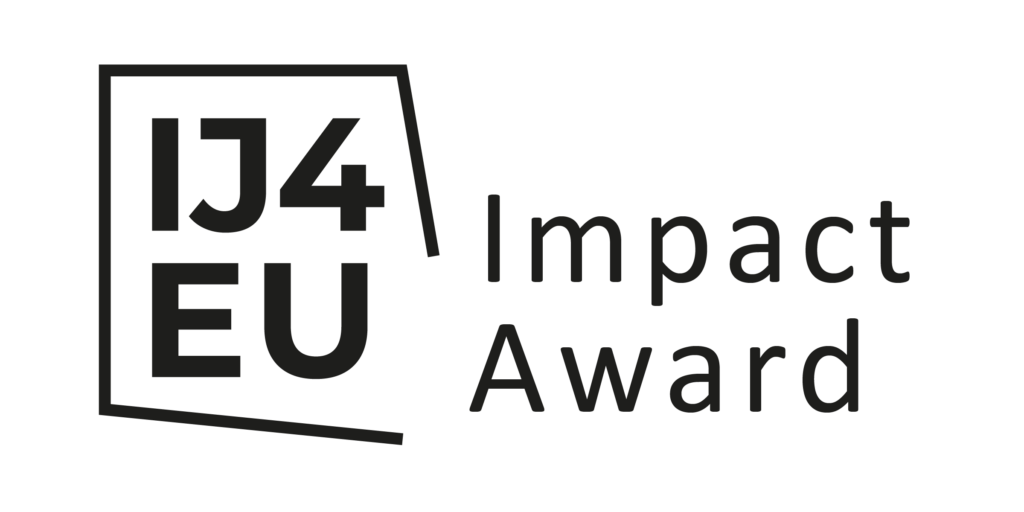Celebrating cross-border journalism with praise and prizes
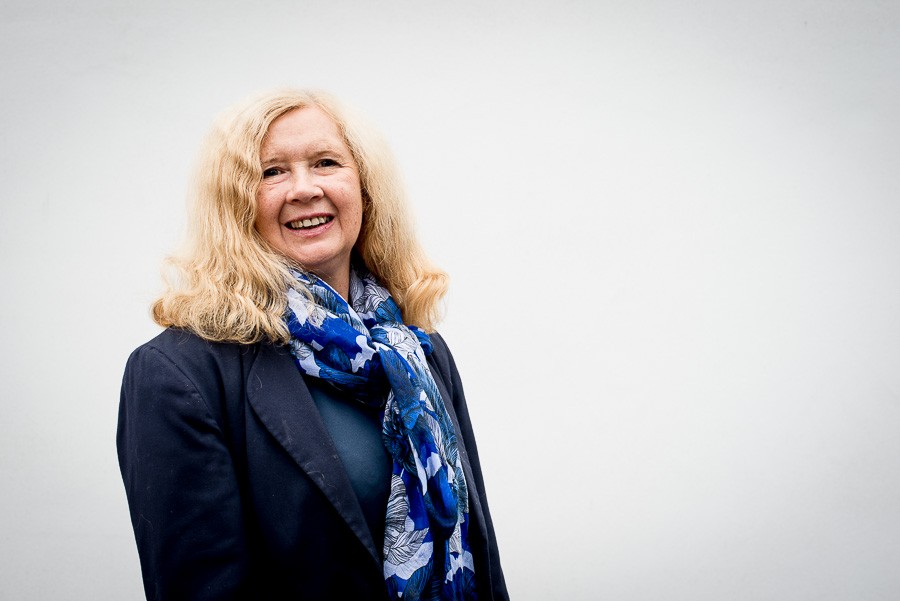
By Jane Whyatt (ECPMF)
There were sad and sombre moments at the #UNCOVERED 2021 online conference, remembering murdered journalists Giorgios Kavaitaz, Daphne Caruana Galizia, and Jàn Kuciak.
Yet the atmosphere was mostly one of celebration, with top-level speakers stressing the importance of cross-border investigative journalism and four teams collecting handsome trophies as well as 5,555 euros each in the first-ever IJ4EU Impact Award.
Sabine Verheyen MEP, who chairs the European Parliament Culture Committee, stressed in the opening panel discussion, chaired by European Centre for Press and Media Freedom Lutz Kinkel:
“We have increased the budget – nearly doubling it – for Creative Europe. To support investigative journalism is one of the core tasks we should concentrate on”
Backing up this promise, the European Commission’s Anna Herold told the online audience of more than 300 registrants:
”We’re extremely proud of this project where full independence of the media is ensured by the arm’s length approach”.
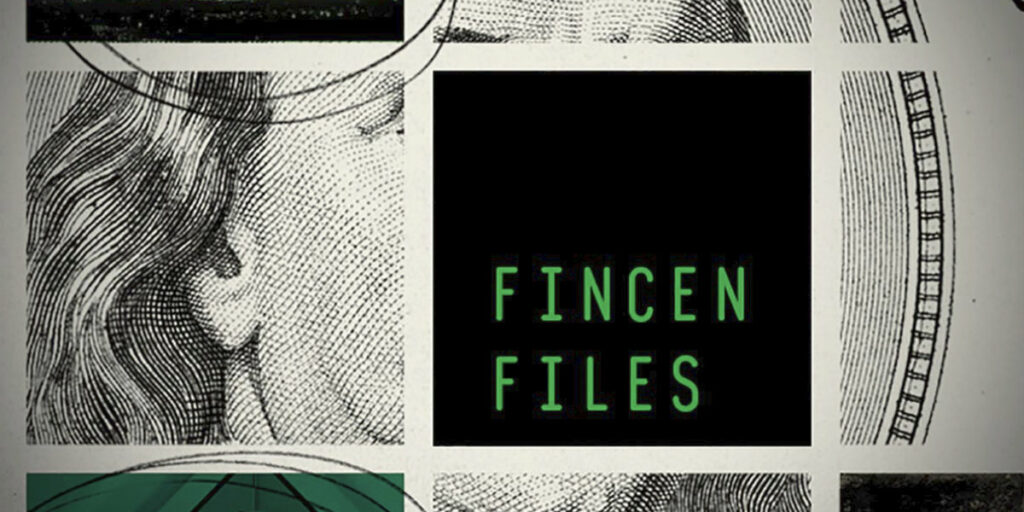
Global teamwork defying the COVID-19 pandemic
Discussing how the FinCEN Files exposed massive money laundering, Fergus Shiel of the International Center for investigative Journalism (ICIJ) told the conference how – in spite of the pandemic lockdown – they were able to track a billion dollars from Turkmenistan to Scotland, and follow another money trail from Hong Kong to California, where it led to the death of a man. “This is what investigative journalism is about” he commented.
His colleague Ariel Kaminer of BuzzFeed News found it a sobering experience, noting that some of the reporters involved work in settings where they were literally putting their lives on the line to do this work.
The next panel on Political Influence provided more examples of the dangers and difficulties facing the cross-border teams.
Moscow-based freelancer Anastasia Kirilenko told how one of their whistleblowers survived an assassination attempt and another received death threats, too. Zoltán Sipos of Átlátszó Erdély described how he and ethnic Hungarians like himself living in nearby countries such as Romania, Slovenia, Slovakia, Serbia and Croatia live in “a parallel reality” which is funded directly from Budapest by Viktor Orbàn’s government with the aim of spreading illiberal values and undermining democracy.
Those values spilled onto the streets of Poland’s cities when the new anti-abortion law was passed in October 2020, forcing the team investigating the ultra-conservative TFP global network to publish earlier than planned. In the panel debate chaired by Timothy Large of the international Press Institute (IPI), Anna Gilerwska explained that the TFP was collecting millions of euros from a base in Kracow by selling rosaries and pictures of saints. Then they traced the money – and political influence – to its branches in Brazil. Slovakia, Croatia and France – where her colleague traced them to a château and found they were living in it!
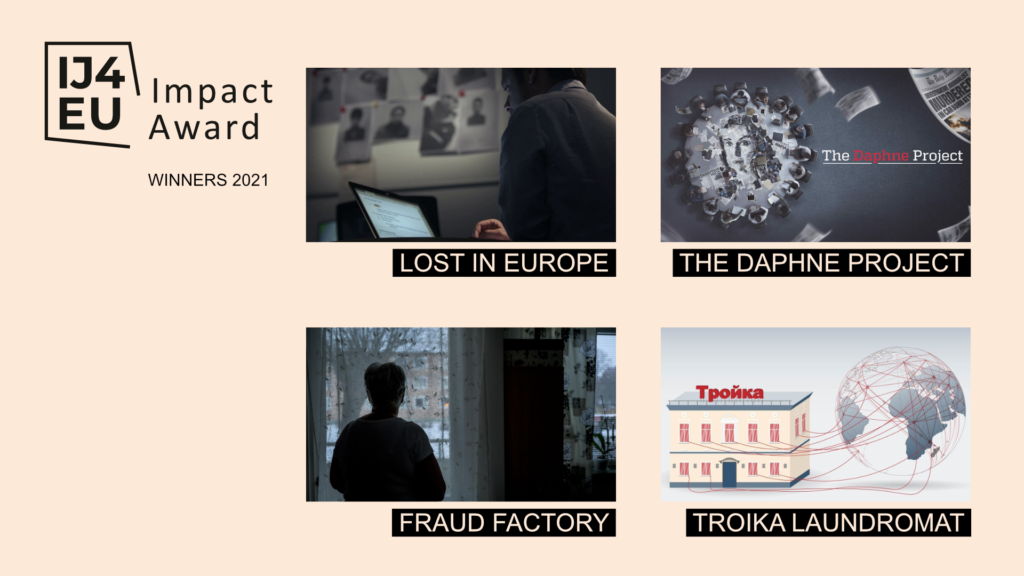
Winners of the IJ4EU Impact Award
The high point of #UNCOVERED was the prizegiving ceremony. This rewarded four cross border investigations that have resulted in criminal charges or political change or changed European society in some other way.
Jury chair Shaun Walker, the Guardian newspaper’s central and eastern Europe correspondent, praised the high quality of all ten shortlisted projects. On the Lost in Europe project, he commented that all the jury members were both impressed and saddened. The team tracked the movements of Vietnamese children who had disappeared from refugee reception centres across Europe and been trafficked into the illicit drugs business and prostitution. Accepting the award on the line from the Netherlands, Geejse van Haran commented: “We learned how vulnerable children are, how important our journalistic ethics are and how important cross-border working is, because the criminals don’t respect border”.
Jury member Theresa Ribeiro, High Representative for Freedom of the Media at the organisations for Security and Cooperation in Europe (OSCE), announced the prize for The Daphne Project which continued the investigations started by murdered reporter Daphne Caruana Galizia:
“The Maltese journalist who paid the highest price for her journalists work. In times of mistrust, this work is more important than ever”.
Accepting the award on behalf of himself and the 45 journalists on the team, Jules Giraudat paid tribute to Daphne’s family, saying “I have a special thought tonight for sons Matthew, Paul and Andrew. They are a true inspiration.”
For the fourth winner, the prize came as a surprise, since only three were originally planned. Mattias Carlsson of the organized Crime And Corruption Reporting Project (OCCRP) explained that their project The Fraud Factory exposed a Ukraine-based global scam that was defrauding pensioners of their savings by claiming to invest them in Bitcoin. Yet although they had a whistleblower – who is now in a witness protection programme – no-one has been charged and there have been no arrests.
As conference host Ali Aslan remarked, there’s a need for a follow-up. The prize money will go to continue all the investigations, since as Lutz Kinkel rightly observed “This is money to keep on working. As we all know, the investigations are costly”.
#UNCOVERED continues on Thursday 15 April 2021. Register here or free. Registrants get access to an exclusive film screening.
